Genre: Sports Developer: Sega Enterprises Publisher: Sega Enterprises Players: 1-2 Released: 1989
Sega’s Tommy Lasorda Baseball is a great game. In this era of yearly sports game updates and game company giants, I suppose older sports games rarely get such praise. But there you go.
And I admit, Tommy Lasorda is a dinosaur. It doesn’t feature a Major League Baseball license, so there are no real-life teams or players (though cities hosting MLB teams are represented). It has only one stadium to play in. There is no ESPN-style presentation, and the special effects… well, there are none. Instead, Tommy Lasorda is simple, 16-bit arcade baseball–the way it should be.
Colorful and infinitely playable, the game is actually an Americanized version of an early Mega Drive cartridge from Japan called Super League. It also seems to be a direct descendant of the Sega Master System’s seminal Reggie Jackson Baseball, taking the same play style and updating it with 16-bit graphics and sound.
Everything in Tommy Lasorda has been infused with appeal. The main play screen features a colorful, attractive layout focusing on the pitcher/batter duel. The players and field look great, with large, detailed sprites and nice animation. Small subscreens in the upper corners spotlight any base runners.
As pitcher, you have control over the speed, direction, and movement of your throws, while success at the plate is dependent on your timing and placement. There’s nothing unique about the play style, but it works well and controls flawlessly. Once contact with the ball is made, the display switches to an overhead view. All of the fielding action takes place here. As in Reggie Jackson, if the ball is hit high enough, it will zoom into the screen, so that even its seams are visible, before descending to a waiting outfielder below. Definitely a nice touch.
Because of the top-down perspective, players appear as little more than the tops of bulky shoulders and caps, but the controls are so effortless, fielding and base running are a joy. Stolen bases can be achieved a bit too easily at times, perhaps because of the control’s responsiveness.
The game’s music features just a handful of tracks, but they’re catchy enough and help generate some of the game’s energy. Where Tommy Lasorda‘s audio excels, however, is in the digitized voices. For one thing, there’s lots of it. An umpire calls every ball, strike, and foul, of course, but the game also calls out the position to which each ball is hit. It’s not always accurate, but is still a cool bonus, and one that made a real impression in the Genesis’ early days. Also, the clarity of Tommy Lasorda‘s speech was almost unheard of outside the arcade in those days, even in other Genesis games. Sound effects, however, are pretty average, save for a satisfying THWACK! whenever a batter makes solid contact with the ball.
Though fictional players populate the game, you have full control over your starting lineups and substitutes. You can choose either seasonal or exhibition play, and of course there’s a two-player mode as well. Comprising thirty games, seasons rely on a password save system. If you’re good enough, a successful season will be followed by a five-game league tournament and finally, a seven-game championship.
If Tommy Lasorda has any real flaw, it would be here. Once you progress past the regular season, each championship must be played in its entirety before you can power down the console. That was no big deal when I was a lonely thirteen year-old with endless time on my hands, but in the adult world, such a contrived way to make the game more challenging is no longer acceptable. Still, Sega created this game in a different time, when a lot of games forced you to beat them in a single sitting. Like playing through the night to finish the first Castlevania, the thrill of victory became worth the effort.
Tommy Lasorda Baseball provides effective proof that you don’t need official team logos and the latest rosters to make a game fun. It’s akin to something you would have played had you walked into an arcade during the late-80s and plunked a token into the newest hardball cabinet. That nostalgic appeal is a big part of Tommy Lasorda‘s modern charm, but the rock-solid gameplay and arcade simplicity are the real draws here. Though there’s little truly unique about the game, it’s too solid an effort to dismiss.
SCORE: 8 out of 10

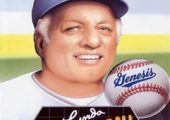
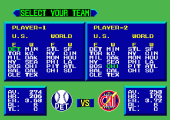
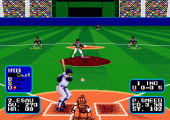
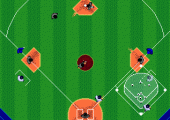
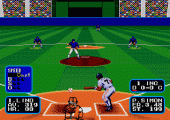
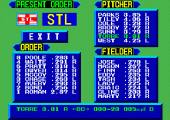
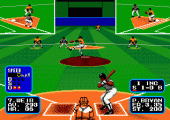
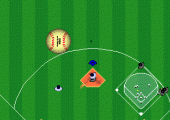
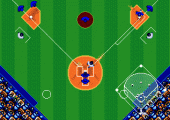
One of the best baseball games on the Genesis, bested only by Sports Talk Baseball! A true masterpiece.